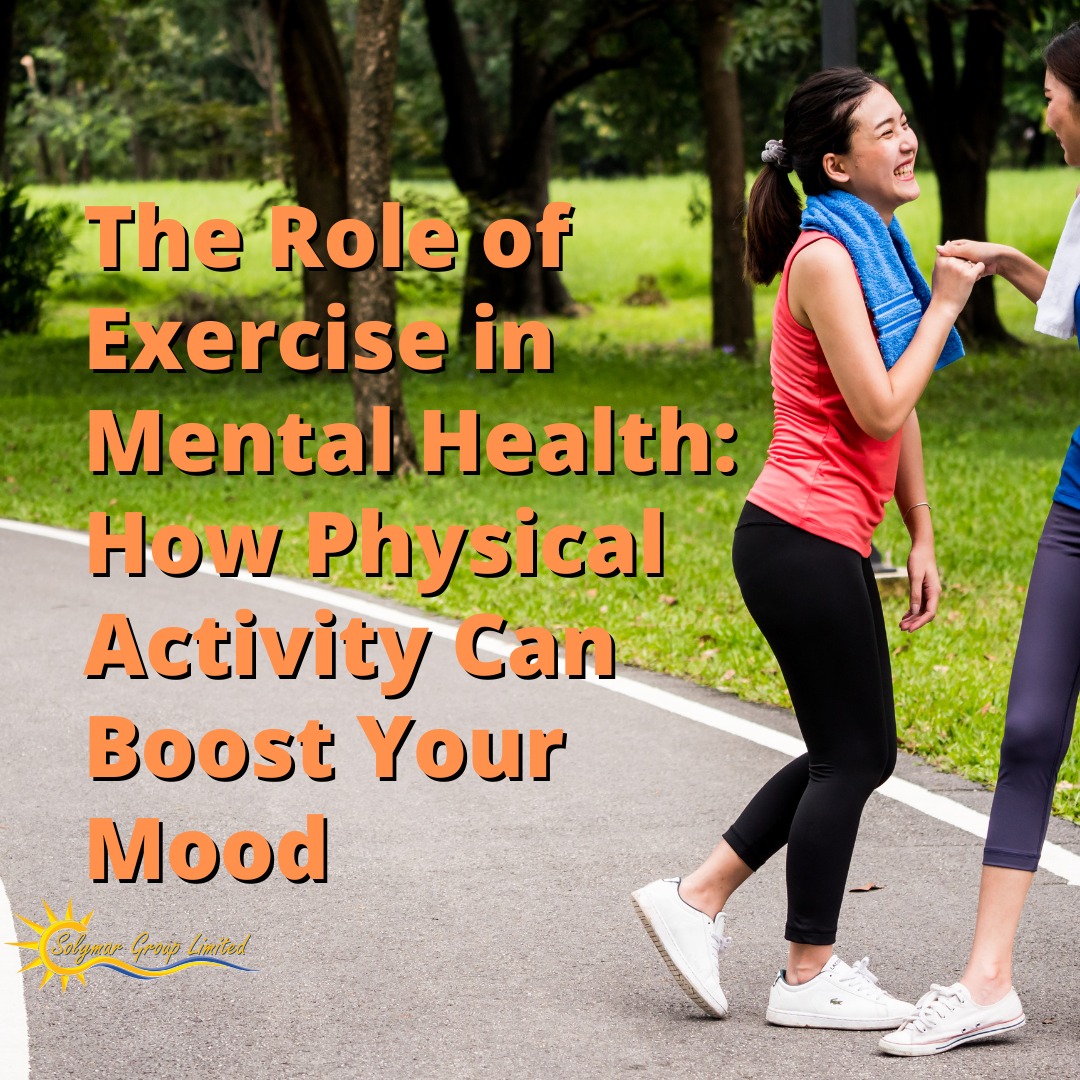 Mental health is an essential component of our overall well-being. Unfortunately, mental illnesses are prevalent worldwide and can cause significant distress, affecting the quality of life of those affected. Fortunately, there are various ways to improve and maintain good mental health. One of the most effective and accessible ways is through exercise. Exercise can help boost your mood and improve your mental health in various ways. Let's explore the role of exercise in mental health and how physical activity can boost your mood.
Mental health is an essential component of our overall well-being. Unfortunately, mental illnesses are prevalent worldwide and can cause significant distress, affecting the quality of life of those affected. Fortunately, there are various ways to improve and maintain good mental health. One of the most effective and accessible ways is through exercise. Exercise can help boost your mood and improve your mental health in various ways. Let's explore the role of exercise in mental health and how physical activity can boost your mood.
The Benefits of Exercise on Mental Health:
Exercise has numerous benefits for mental health. Studies have shown that exercise can help reduce symptoms of depression, anxiety, and stress. Regular physical activity can also improve cognitive function, increase self-esteem, and improve sleep quality. Exercise has been shown to have a positive effect on mental health conditions such as ADHD, bipolar disorder, and schizophrenia.
Exercise and Depression:
Depression is a common mental illness that affects millions of people worldwide. Studies have shown that exercise can be an effective treatment for depression. Exercise stimulates the release of endorphins, which are chemicals in the brain that can help reduce feelings of depression and anxiety. Endorphins also have a positive effect on mood and can help improve sleep quality.
A study conducted by the Duke University Medical Center found that exercise was just as effective as antidepressant medication in treating depression. The study found that after four months, those who exercised had similar outcomes to those who took medication. Exercise was also found to have longer-lasting effects than medication. Another study conducted by the University of Toronto found that exercise had a positive effect on depression symptoms in both younger and older adults.
Exercise and Anxiety:
Anxiety is another common mental illness that can cause significant distress. Exercise has been shown to be an effective way to reduce anxiety symptoms. Exercise can help reduce muscle tension, increase relaxation, and reduce feelings of anxiety. A study conducted by the University of Georgia found that even a single bout of exercise could help reduce anxiety symptoms. The study found that participants who exercised for just 20 minutes had reduced anxiety symptoms compared to those who did not exercise.
Exercise and Stress:
Stress is a common experience for many people, and it can have a significant impact on mental health. Exercise has been shown to be an effective way to reduce stress. Exercise helps stimulate the release of endorphins, which can help reduce stress levels. Exercise also helps reduce muscle tension and improve sleep quality, both of which can help reduce stress levels.
A study conducted by the University of Colorado Boulder found that regular exercise can help reduce stress levels. The study found that those who exercised regularly had lower levels of stress hormones, such as cortisol, than those who did not exercise regularly. Another study conducted by the University of British Columbia found that regular exercise could help reduce the negative impact of stress on mental health.
Exercise and Cognitive Function:
Exercise has been shown to have a positive effect on cognitive function. Regular exercise can improve memory, attention, and processing speed. Exercise helps increase blood flow to the brain, which can help improve cognitive function. Exercise also stimulates the growth of new brain cells, which can help improve cognitive function.
A study conducted by the University of British Columbia found that regular exercise can help improve cognitive function in older adults. The study found that those who exercised regularly had better memory and attention than those who did not exercise regularly. Another study conducted by the University of Illinois found that regular exercise could help improve cognitive function in children with ADHD.
Exercise and Self-Esteem:
Self-esteem is an essential component of mental health. Exercise can help improve self-esteem by promoting feelings of accomplishment and self-worth. Exercise can also help improve body image, which can have a positive effect on self-esteem.
A study conducted by the University of Florida found that regular exercise could help improve self-esteem in older adults
Exercise and Sleep:
Sleep is crucial for good mental health, and exercise has been shown to improve sleep quality. Exercise can help reduce the time it takes to fall asleep and increase the amount of deep sleep. Deep sleep is the most restorative phase of sleep, and it plays an essential role in physical and mental health.
A study conducted by the National Sleep Foundation found that regular exercise can improve sleep quality in adults. The study found that those who exercised regularly had better sleep quality than those who did not exercise regularly. Another study conducted by the University of Arizona found that exercise helped improve sleep quality in older adults with insomnia.
Exercise and Mental Illness:
Exercise can also have a positive effect on mental illness. Regular exercise has been shown to help reduce symptoms of mental illnesses such as ADHD, bipolar disorder, and schizophrenia. Exercise can help improve mood, reduce anxiety, and improve cognitive function, all of which can have a positive effect on mental illness.
A study conducted by the University of Texas found that regular exercise could help reduce symptoms of bipolar disorder. The study found that those who exercised regularly had fewer manic and depressive symptoms than those who did not exercise regularly. Another study conducted by the University of Toronto found that exercise could help reduce symptoms of schizophrenia. The study found that those who participated in a 12-week exercise program had reduced symptoms of schizophrenia compared to those who did not participate in the program.
Conclusion:
Exercise has numerous benefits for mental health, and it can be an effective way to improve and maintain good mental health. Exercise can help reduce symptoms of depression, anxiety, and stress. Regular physical activity can also improve cognitive function, increase self-esteem, and improve sleep quality. Exercise has been shown to have a positive effect on mental health conditions such as ADHD, bipolar disorder, and schizophrenia. If you are struggling with your mental health, consider incorporating regular exercise into your routine. Always consult with your healthcare provider before starting a new exercise program.
Hashtags: #Exercise #mentalhealth #depression #anxiety #stress #cognitivefunction #self-esteem #sleep quality #ADHD #bipolar disorder #schizophrenia #endorphins #mood #relaxation #memory #attention #bodyimage #deepsleep #meta-analysis #studies #Insomnia






